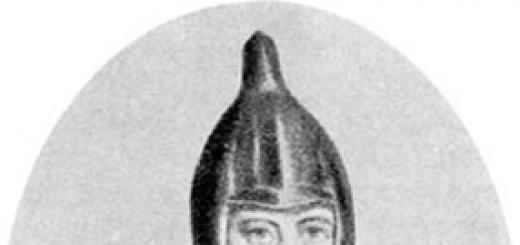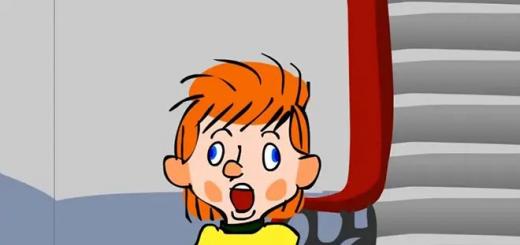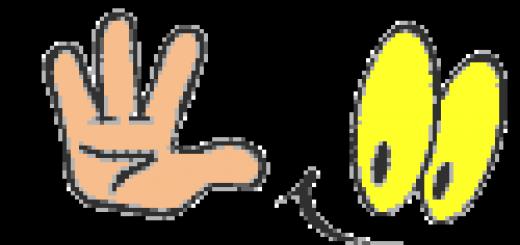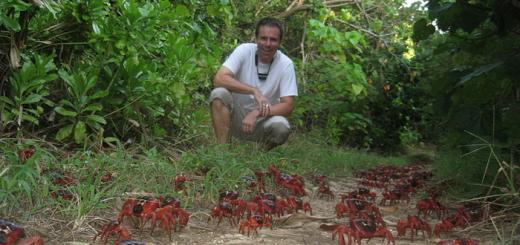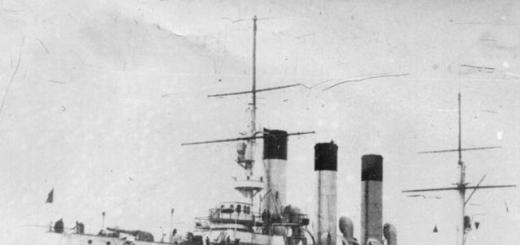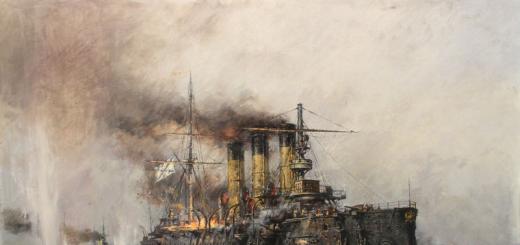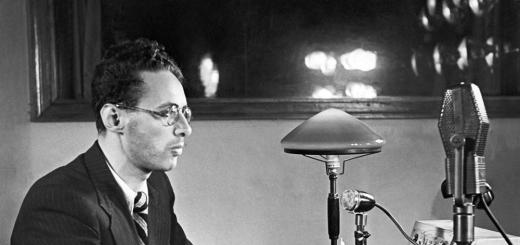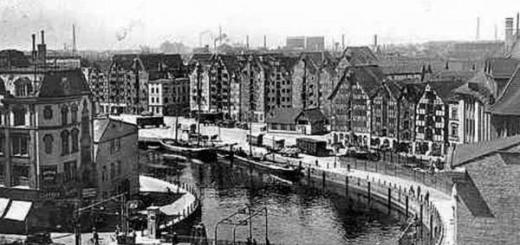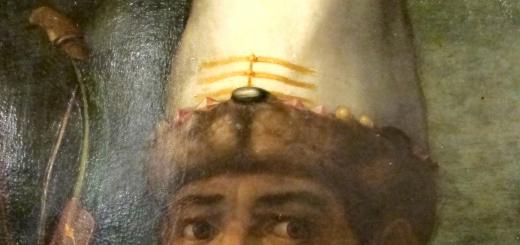The book is devoted to the problem of age-related crises of an adult and is written in the style of psychological interviews. It explores in detail various options adult crises that inevitably lie in wait for every person after the age of 35, and ways out of them. The book is of great interest both for specialists and for a wide range of readers. Immediately after its publication, it became a bestseller and sold over five million copies in English-speaking countries.
PART ONE: THE MYSTERIES OF THE LIFE CYCLE
Chapter 1
At the age of thirty-five, I had my first nervous breakdown. I was happy, full of energy, and suddenly, as if I fell off a cliff into a seething stream. Here is how it was.
On assignment from the magazine, I was in Northern Ireland, in the town of Derry. The sun was shining brightly, the Catholic civil rights march had just ended, and we, the marchers, felt like winners. However, the convoy was met by soldiers at the barricades, they fired at us with tear gas cartridges and rubber bullets. We dragged the wounded to a safe place and after a while watched what was happening already from the balcony.
“How do paratroopers manage to shoot gas cartridges so far?” I asked the young man standing next to me.
“Look, they are hitting the ground with their butts,” he replied. And then the bullet hit him in the mouth, pierced the nasal septum and disfigured his face beyond recognition.
“Oh God,” I was stunned, “these are real bullets!” For the first time in my life, I was faced with a situation that could not be corrected.
At this time, British armored cars began to wedged into the crowd, machine gunners jumped out of them. They poured lead bullets on us.
The severely wounded youth fell on top of me. Old man, who was hit hard in the neck with a rifle butt, stumbled up the stairs and collapsed on top of us. Several more people squeezed onto the outer stairs, and we crawled up under the fire.
I shouted: "Can't you get into someone's apartment?" But all the doors were locked. We got to the eighth floor. Someone had to go up to the balcony under open fire and knock on the nearest door. From below came the cry of a boy:
"God, I've been hit!" This voice made me act. Shaking with fear, hiding behind a soft baby coat in the hope that it would save me, and hearing the whistle of bullets a few feet from my own nose, I rushed to the nearest door.
We were let into an apartment filled with women and children. The shelling continued for about an hour. From the window I saw three children who ran out from behind the barricade and wanted to hide. The bullets went through them like targets in a shooting range. A priest followed them, waving a white handkerchief. The old man bent over the children's bodies and began to pray. He suffered the same fate.
The wounded man we were dragging upstairs asked if anyone had seen him younger brother. The answer was: "He is killed."
A few years ago, my brother died in Vietnam. He was buried in Connecticut, in the countryside. The guard of honor covered the coffin with a flag, which for some reason resembled a veil. People shook my hand and said, "We know how you feel right now." I also thought then that it is pointless to say to a person who has suffered a heart attack, empty words like "don't take it to heart." “I know how you feel right now” is the only thing I can say right now. I didn't know this before.
After the unexpected massacre, I, like many others, ended up in a summer house in a Catholic ghetto. All exits from the city were blocked. All that remained was to wait. We waited for the British soldiers to start searching house after house.
“What will you do if soldiers come and start shooting?” I asked the old woman who sheltered me. "I'll lie face down," she said.
One of the women tried to clarify the names of those killed by phone. Once a convinced Protestant, I tried to pray. But I was reminded of a stupid childish game that begins with the words: "If you have one single desire in this world ...". I decided to call a loved one in New York. He will say magic words and the danger will go away.
"I'm alive".
"Okay, how's it going?"
“I miraculously escaped. Thirteen people have been killed today.”
“Hold on. It's London Derry that's on the news."
"This is a bloodbath."
"Can you speak louder?"
“It's not over yet. An armored personnel carrier has just run over a mother of fourteen children.”
“Look, you don't have to go to the front line. Don't forget, you have to write an article about Irish women. Join the women and stay out of trouble. Okay, dear?"
After this pointless conversation, I was numb. His eyes darkened, his head turned cast iron. I had only one thought: to survive. The world meant nothing to me anymore. Thirteen people will die, or thirteen thousand, maybe I will die too. And tomorrow everything will be in the past. I understand: there is no one with me. Nobody can protect me.
After that, I suffered from headaches for a whole year.
annotation
The book is devoted to the problem of age-related crises of an adult and is written in the style of psychological interviews. It examines in detail the various options for adult crises that inevitably lie in wait for every person after the age of 35, and ways out of them. The book is of great interest both for specialists and for a wide range of readers. Immediately after its publication, it became a bestseller and sold over five million copies in English-speaking countries.
Gale Sheehy
AGE CRISES
The idea for this book came from Hal Charlatt, a wonderful editor and person who has always supported my research. mental states mature age. After his untimely death, Jack Macrae devoted much time to editing this book, and thanks to his efforts, it acquired a special flavor.
The book became a reality thanks to those people who shared stories from their lives. Without naming their names, I hope that I am doing the right thing.
A lot of people helped me in the work on the book. First of all, I am indebted to such professionals as Daniel Levinson, Margaret Mead and Roger Gould. I am especially grateful to Bernice Neugarten, George Veilant, Margaret Hennig, James Donovan, Marylu Lionela, and Carol Man, who helped me as experts.
I am deeply indebted to Carol Rinzler, Deborah Main, and Byron Dobell for reading several versions of the book and for their help in editing them. Also gratefully acknowledged the comments of Jerry Kosinski, Patricia Hinion and Shota Shudasama.
Virginia Dayani spent nights typing, Lee Powell editing, Ella Cumchil copy after copy. It seemed that this book would never turn into something tangible. I am grateful to them for their patience and endurance.
Financial support in the form of a scholarship was offered by the Alicia Paterson Foundation. The Foundation also provided me with moral support, for which I am extremely grateful to its director, Richard Nolte.
I am eternally grateful to Maura Sheehy and Clay Felker. When I wrote, suffered, rewrote, dreamed and lived by this book, they sacrificed their personal time, holidays for the sake of my cause and therefore are rightfully considered her godmothers.
Gail Sheehy, New York
PART ONE: THE MYSTERIES OF THE LIFE CYCLE
Chapter 1
At the age of thirty-five, I had my first nervous breakdown. I was happy, full of energy, and suddenly, as if I fell off a cliff into a seething stream. Here is how it was.
On assignment from the magazine, I was in Northern Ireland, in the town of Derry. The sun was shining brightly, the Catholic civil rights march had just ended, and we, the marchers, felt like winners. However, the convoy was met by soldiers at the barricades, they fired at us with tear gas cartridges and rubber bullets. We dragged the wounded to a safe place and after a while watched what was happening already from the balcony.
"How do paratroopers manage to shoot gas cartridges so far?" I asked the young man standing next to me.
"Look, they're hitting the ground with their rifle butts," he replied. And then the bullet hit him in the mouth, pierced the nasal septum and disfigured his face beyond recognition.
"Oh God," I was stunned, "these are real bullets!" For the first time in my life, I was faced with a situation that could not be corrected.
At this time, British armored cars began to wedged into the crowd, machine gunners jumped out of them. They poured lead bullets on us.
The severely wounded youth fell on top of me. An elderly man who had been hit hard in the neck with a rifle butt stumbled up the stairs and collapsed on top of us. Several more people squeezed onto the outer stairs, and we crawled up under the fire.
I shouted: "Is it possible to get into someone's apartment?" But all the doors were locked. We got to the eighth floor. Someone had to go up to the balcony under open fire and knock on the nearest door. From below came the cry of a boy:
"God, I've been hit!" This voice made me act. Shaking with fear, hiding behind a soft baby coat in the hope that it would save me, and hearing the whistle of bullets a few feet from my own nose, I rushed to the nearest door.
We were let into an apartment filled with women and children. The shelling continued for about an hour. From the window I saw three children who ran out from behind the barricade and wanted to hide. The bullets went through them like targets in a shooting range. A priest followed them, waving a white handkerchief. The old man bent over the children's bodies and began to pray. He suffered the same fate.
The wounded man we were dragging upstairs asked if anyone had seen his younger brother. The answer was: "He is killed."
A few years ago, my brother died in Vietnam. He was buried in Connecticut, in the countryside. The guard of honor covered the coffin with a flag, which for some reason resembled a blanket. People shook my hand and said, "We know how you feel right now." I also thought then that it is pointless to say to a person who has suffered a heart attack, empty words like "don't take it to heart." "I know how you feel right now" is the only thing I can say right now. I didn't know this before.
After the unexpected massacre, I, like many others, ended up in a summer house in a Catholic ghetto. All exits from the city were blocked. All that remained was to wait. We waited for the British soldiers to start searching house after house.
“What will you do if soldiers come and start shooting?” I asked the old woman who sheltered me. "I'll lie face down," she said.
One of the women tried to clarify the names of those killed by phone. Once a convinced Protestant, I tried to pray. But I was reminded of a stupid childish game that begins with the words: "If you have one single desire in this world:". I decided to call a loved one in New York. He will say the magic words and the danger will go away.
"Okay, how's it going?"
"I miraculously escaped. Thirteen people were killed today."
"Hold on. The news is talking about London Derry."
"This is a bloodbath."
"Can you speak louder?"
"It's not over yet. An armored personnel carrier just ran over a mother of fourteen."
"Look, you don't have to go to the front. Don't forget, you have to write an article about Irish women. Join the women and stay out of trouble. All right, dear?"
After this pointless conversation, I was numb. His eyes darkened, his head turned cast iron. I had only one thought: to survive. The world meant nothing to me anymore. Thirteen people will die, or thirteen thousand, maybe I will die too. And tomorrow everything will be in the past. I realized that there is no one with me. Nobody can protect me.
After that, I suffered from headaches for a whole year.
Returning home, I was still under the impression of my possible death for a long time. There was no question of any article. In the end, I gave out a few words, met the deadlines, but at what cost? My anger turned into a sharp diatribe against those close to me. I left everyone who supported me and could help in the fight against the demons of fear: I broke off relations with the man I had been with for four years, fired the secretary, let the housekeeper go and was left alone with my daughter Maura and my memories.
In the spring, I did not recognize myself. My ability to make quick decisions, the mobility that allowed me to get rid of old views, the audacity and selfishness to achieve the next goal, wandering around the world, and then working on articles all night long with coffee and cigarettes - all this no longer affected me.
An inner voice tormented me: "Take stock. Half of my life has been lived. Isn't it time to take care of the house and have a second child?" He made me think about the question that I carefully pushed aside from myself: "What did you give to the world? Words, books, donations - is that enough? You were a performer in this world, not a participant. But you are already thirty-five:"
Such was my first encounter with the arithmetic of life.
It's terrible to be under fire, but the same feelings can be experienced after any accident. Imagine: twice a week you play tennis with an energetic thirty-eight-year-old businessman. One day after the game, a blood clot breaks off and enters the artery, the heart valve is clogged, and the person is not able to call for help. His death shocks his wife, business colleagues and all friends of the same age, including you.
Or a long-distance call notifies you that your father or mother is in the hospital. Lying in bed, you remember how energetic and cheerful your mother was, and when you see her in the hospital, you understand that all this is gone forever, replaced by illness and helplessness.
By the middle of life, when we reach thirty-five or forty-five years, we begin to seriously think about the fact that we are mortal, that our time is passing, and that if we do not hasten to decide in this life, it will turn into trivial duties to maintain existence. This simple truth shocks us. Apparently, we expect changes in roles and rules that we were completely satisfied with in the first half of life, but must be revised in the second half.
Under normal circumstances, without the blows of fate and strong shocks, these issues appear within a few years. We need time to adjust. But when they hit us all at once, we cannot "digest" them immediately. The transition to the second half of life seems to us very hard and too fast to accept.
These questions came to me when I was suddenly confronted with death in Northern Ireland.
And here's what happened six months later. Imagine me, a confident, career-successful divorced businesswoman, rushing to the plane to fly to Florida, where the Democratic National Convention is taking place, when I suddenly find one of my favorite pet birds dead. I start to sob out loud. You will probably say: "This woman has gone crazy." I thought exactly the same.
I took a seat at the tail of the plane so that in a plane crash I would be the last one to hit the ground.
Air travel has always been a joy to me. At the age of thirty, I did not know what fear was, I went in for parachuting. Now everything was different. As soon as I got close to the plane, I saw a balcony in Northern Ireland. This fear soon developed into a phobia. The stories of plane crashes began to attract me. I painfully studied all the details in the photographs from the crash sites. After finding out that planes break down in the front, I made it a rule to land in the tail, and when I got on the plane, I asked the pilot: "Do you have experience with instrument landings?" However, I didn't feel ashamed.
Gale Sheehy book entitled Age crises is devoted to the problem of age-related crises of an adult and is written in the style of psychological interviews. It examines in detail the various options for adult crises that inevitably lie in wait for every person after the age of 35, and ways out of them. Book, "Age Crises", is of great interest both for specialists and for a wide range of readers. Immediately after its publication, it became a bestseller and sold over five million copies in English-speaking countries.
Gail Sheehy AGE CRISES
Stages of personal growth
From the author
PART ONE: THE MYSTERIES OF THE LIFE CYCLE
Chapter 1
Life after youth?
Chapter 2
Two married couples, two generations
Married couple A
Married couple B
Separation from parental roots
Quest at twenty
Realize your thirty
Roots and expansion
Age between thirty-five and forty-five
Renewal or submission
PART TWO: BREAKING FROM PARENTAL ROOTS
Chapter 3
Chapter 4
Chapter 5
Finding an idea to believe in
Which model to choose, which hero to take an example from?
"What am I going to do with my life"?
Chapter 6
All you need is love
The principle of "support"
Marriage as a way to escape from parental care
Beginnings
The child who will make my life complete
Mandatory graffiti
woman after college
Find the right "I"
Chapter 7
PART THREE: SEEKING IN TWENTY YEARS
Chapter 8
I should…
The Power of Illusion
The only true path in life
Chapter 9
The only true married couple and changes
Chapter 10
Safety
header
Escape from home
The prestige of practicality
Chapter 11
bad old days
Brave new days
The danger of success
The danger of softness
Looking Beyond Your Own Nose
Chapter 12. SCENES OF LIFE: PREVIEW
A person with a quick reaction
Initiative woman
PART FOUR: TRANSITION TO THE AGE OF THIRTY
Chapter 13
Spouses in the period of awareness of their thirty years of age
"Grateful Woman"
Wife's plans
Violations in a closed dyad
Rooting and expanding
Chapter 14
Marriage
By oneself
recoil
PART FIVE: I AM UNIQUE
Chapter 15
Unstable
Closed
geeks
Men who never marry, caregivers and hidden children
These three behaviors are much rarer than those described above.
Integrators
Chapter 16
caring
Or or
Integrators
Women who never get married
Unstable
PART SIX: A 10-YEAR REVIEW
Chapter 17
Darkness at the end of the tunnel
Changes in sense of time
Changing the feeling of energy through stagnation
Changes in how you feel about yourself and others
disillusionment
Movement towards your individuality
From decomposition into constituent parts to renewal
Inspection of the dark side
Chapter 18
Creative crisis
spiritual crisis
The difference between middle life and middle age
Chapter 19
Crossroads for women
Resurrection of Priscilla Bloom
Chapter 20
middle manager
Corporate Wunderkind
Abandon an impossible dream
Joy of caring
Performance Issues
Courage to change career
Knight's move
Chapter 21
Different understanding of the dream
Envy towards wife
And where did the children go?
Mother releases from the nest
Second Attempt Citizen Soldier
Argument "You're crazy"
Who did it?
Chapter 22
Some facts about the sex life of men and women
Divergence of sexual life cycles
civilized male orgasm
Curious testosterone spikes
Secrets of the Critical Age
Sex and Climax
Chapter 23
Lifestyle change
Renewal in life
Chapter 24
PART SEVEN: UPDATE
Chapter 25
New influx of energy
Fearless assessment of physical aging
A new attitude towards money, religion and death
Socializing or interest in being alone
And finally, self-affirmation
Notes
Download a book:
(312)
P.S. From myself I will add, the book is excellent,
give her your precious time
and you won't regret it one bit!
"Age Crises": Juventa; St. Petersburg; 1999
ISBN 5-87399-108-1
annotation
The book is devoted to the problem of age-related crises of an adult and is written in the style of psychological interviews. It examines in detail the various options for adult crises that inevitably lie in wait for every person after the age of 35, and ways out of them. The book is of great interest both for specialists and for a wide range of readers. Immediately after its publication, it became a bestseller and sold over five million copies in English-speaking countries.
Gale Sheehy
Age crises
Stages of personal growth
From the author
The idea for this book came from Hal Charlatt, a wonderful editor and a person who has always supported my research into the mental states of adulthood. After his untimely death, Jack Macrae devoted much time to editing this book, and thanks to his efforts, it acquired a special flavor.
The book became a reality thanks to those people who shared stories from their lives. Without naming their names, I hope that I am doing the right thing.
A lot of people helped me in the work on the book. First of all, I am indebted to such professionals as Daniel Levinson, Margaret Mead and Roger Gould. I am especially grateful to Bernice Neugarten, George Veilant, Margaret Hennig, James Donovan, Marylu Lionela, and Carol Man, who helped me as experts.
I am deeply indebted to Carol Rinzler, Deborah Main, and Byron Dobell for reading several versions of the book and for their help in editing them. Also gratefully acknowledged the comments of Jerry Kosinski, Patricia Hinion and Shota Shudasama.
Virginia Dayani spent nights typing, Lee Powell editing, Ella Cumchil copy after copy. It seemed that this book would never turn into something tangible. I am grateful to them for their patience and endurance.
Financial support in the form of a scholarship was offered by the Alicia Paterson Foundation. The Foundation also provided me with moral support, for which I am extremely grateful to its director, Richard Nolte.
I am eternally grateful to Maura Sheehy and Clay Felker. When I wrote, suffered, rewrote, dreamed and lived by this book, they sacrificed their personal time, holidays for the sake of my cause and therefore are rightfully considered her godmothers.
Gail Sheehy, New York
Part One: The Secrets of the Life Cycle Chapter 1. Madness and How to Deal with It
At the age of thirty-five, I had my first nervous breakdown. I was happy, full of energy, and suddenly, as if I fell off a cliff into a seething stream. Here is how it was.
On assignment from the magazine, I was in Northern Ireland, in the town of Derry. The sun was shining brightly, the Catholic civil rights march had just ended, and we, the marchers, felt like winners. However, the convoy was met by soldiers at the barricades, they fired at us with tear gas cartridges and rubber bullets. We dragged the wounded to a safe place and after a while watched what was happening already from the balcony.
“How do paratroopers manage to shoot gas cartridges so far?” I asked the young man standing next to me.
“Look, they are hitting the ground with their rifle butts,” he replied. And then the bullet hit him in the mouth, pierced the nasal septum and disfigured his face beyond recognition.
“Oh God,” I was stunned, “these are real bullets!” For the first time in my life, I was faced with a situation that could not be corrected.
At this time, British armored cars began to wedged into the crowd, machine gunners jumped out of them. They poured lead bullets on us.
The severely wounded youth fell on top of me. An elderly man who had been hit hard in the neck with a rifle butt stumbled up the stairs and collapsed on top of us. Several more people squeezed onto the outer stairs, and we crawled up under the fire.
I shouted: "Can't you get into someone's apartment?" But all the doors were locked. We got to the eighth floor. Someone had to go up to the balcony under open fire and knock on the nearest door. From below came the cry of a boy:
"God, I've been hit!" This voice made me act. Shaking with fear, hiding behind a soft baby coat in the hope that it would save me, and hearing the whistle of bullets a few feet from my own nose, I rushed to the nearest door.
We were let into an apartment filled with women and children. The shelling continued for about an hour. From the window I saw three children who ran out from behind the barricade and wanted to hide. The bullets went through them like targets in a shooting range. A priest followed them, waving a white handkerchief. The old man bent over the children's bodies and began to pray. He suffered the same fate.
The wounded man we were dragging upstairs asked if anyone had seen his younger brother. The answer was: "He is killed."
A few years ago, my brother died in Vietnam. He was buried in Connecticut, in the countryside. The guard of honor covered the coffin with a flag, which for some reason resembled a veil. People shook my hand and said, "We know how you feel right now." I also thought then that it is pointless to say to a person who has suffered a heart attack, empty words like "don't take it to heart." "I know how you feel right now" is the only thing I can say right now. I didn't know this before.
After the unexpected massacre, I, like many others, ended up in a summer house in a Catholic ghetto. All exits from the city were blocked. All that remained was to wait. We waited for the British soldiers to start searching house after house.
“What will you do if the soldiers come and start shooting?” I asked the old woman who sheltered me. "I'll lie face down," she said.
One of the women tried to clarify the names of those killed by phone. Once a convinced Protestant, I tried to pray. But I was reminded of a stupid childish game that begins with the words: "If you have one single desire in this world ...". I decided to call a loved one in New York. He will say the magic words and the danger will go away.
"I'm alive".
"Okay, how's it going?"
“I miraculously escaped. Thirteen people have been killed today.”
“Hold on. It's London Derry that's on the news."
"This is a bloodbath."
"Can you speak louder?"
“It's not over yet. An armored personnel carrier has just run over a mother of fourteen children.”
“Look, you don't have to go to the front line. Don't forget, you have to write an article about Irish women. Join the women and stay out of trouble. Okay, dear?"
After this pointless conversation, I was numb. His eyes darkened, his head turned cast iron. I had only one thought: to survive. The world meant nothing to me anymore. Thirteen people will die, or thirteen thousand, maybe I will die too. And tomorrow everything will be in the past. I understand: there is no one with me. Nobody can protect me.
After that, I suffered from headaches for a whole year.
Returning home, I was still under the impression of my possible death for a long time. There was no question of any article. In the end, I gave out a few words, met the deadlines, but at what cost? My anger turned into a sharp diatribe against those close to me. I left everyone who supported me and could help in the fight against the demons of fear: I broke off relations with the man I had been with for four years, fired the secretary, let the housekeeper go and was left alone with my daughter Maura and my memories.
In the spring, I did not recognize myself. My ability to make quick decisions, the mobility that allowed me to get rid of old views, the audacity and selfishness to achieve the next goal, wandering around the world, and then working on articles all night long with coffee and cigarettes - all this no longer affected me.
An inner voice tormented me: “Summarize. Half of life has been lived. Isn't it time to take care of the house and have a second child? He made me think about the question that I carefully pushed away from myself: "A what have you given to the world? Words, books, donations - is that enough? You were a performer in this world, not a participant. But you are already thirty-five ... "
Such was my first encounter with the arithmetic of life.
It's terrible to be under fire, but the same feelings can be experienced after any accident. Imagine: twice a week you play tennis with an energetic thirty-eight-year-old businessman. One day after the game, a blood clot breaks off and enters the artery, the heart valve is clogged, and the person is not able to call for help. His death shocks his wife, business colleagues and all friends of the same age, including you.
Or a long-distance call notifies you that your father or mother is in the hospital. Lying in bed, you remember how energetic and cheerful your mother was, and when you see her in the hospital, you understand that all this is gone forever, replaced by illness and helplessness.
By the middle of life, when we reach thirty-five or forty-five years, we begin to seriously think about the fact that we are mortal, that our time is passing, and that if we do not hasten to decide in this life, it will turn into trivial duties to maintain existence. This simple truth shocks us. Apparently, we expect changes in roles and rules that we were completely satisfied with in the first half of life, but must be revised in the second half.
Under normal circumstances, without the blows of fate and strong shocks, these issues appear within a few years. We need time to adjust. But when they fall on us all at once, we cannot "digest" them immediately. The transition to the second half of life seems to us very hard and too fast to accept.
These questions came to me when I was suddenly confronted with death in Northern Ireland.
And here's what happened six months later. Imagine me, a confident, career-successful divorced businesswoman, rushing to the plane to fly to Florida, where the Democratic National Convention is taking place, when I suddenly find one of my favorite pet birds dead. I start to sob out loud. You will probably say: "This woman has gone crazy." I thought exactly the same.
I took a seat at the tail of the plane so that in a plane crash I would be the last one to hit the ground.
Air travel has always been a joy to me. At the age of thirty, I did not know what fear was, I went in for parachuting. Now everything was different. As soon as I got close to the plane, I saw a balcony in Northern Ireland. This fear soon developed into a phobia. The stories of plane crashes began to attract me. I painfully studied all the details in the photographs from the crash sites. After finding out that planes break down in the front, I made it a rule to land in the tail, and when I got on the plane, I asked the pilot: “Do you have experience with instrument landings?” However, I didn't feel ashamed.
I found little consolation in the fact that before, until the age of thirty-five, nothing like this had happened to me. All my previous worries had a real basis, but the cause of the current aviophobia was other, unrelated events, forced into the subconscious. I tried to end it, and at one time it even seemed to me that everything was sorted out. However, as I sobbed over the dead bird, I realized that I had only seen the tip of the iceberg.
Immediately, for some reason, I remembered that I had refused the services of a housekeeper. Can I find another housekeeper? If not, then I'll have to quit my job. How is my relationship with my daughter?
For a while I left Maura with her father. We loved each other for a long time and after a divorce caused by petty quarrels, we agreed to see each other for the sake of our child. It wasn't unusual for Maura to spend a week with her father, but I missed her so much. I was suddenly seized with panic, as if this was not a temporary separation, but an irreversible loss. The dark thoughts tearing me apart from the inside released dark forces that threatened to destroy my entire world, built in haste. When we flew up to Miami and I wished the Boeing 727 to pass Flushing Bay, the inner voice reappeared: "You have done Good work, but what can really be added to this?
Nervously, I lost my appetite. I did not know that a struggle began in the stomach between two drugs that were opposite in their action. One was prescribed to me for the treatment of asthenia, and the other was prescribed by a psychotherapist after a mental trauma in Ireland. On the explosive mixture of medicines and water in my stomach, I splashed more cognac and champagne.
Once in the hotel room, I acted automatically, and at first I liked it. Fill the closets. Clear the workplace. Create, as they say, a homely atmosphere. Open suitcase. And then I experienced a shock. I saw a pair of new red sandals on a white skirt. They were a bright red spot on a white background. I screamed.
Suddenly I felt like I couldn't bring myself to make a plan, answer the phone, make appointments. What article should I write and for whom? Drug interactions started, but I didn't know that. Dizziness, stomach cramps. My heart was beating frantically and it felt like it was about to burst out of my chest.
The room was on the twenty-first floor. A glazed balcony overlooks the Bay of Biscay. There was water below, nothing but water. On this day there was a solar eclipse.
I was drawn to the balcony. With morbid admiration, I watched the eclipse. Even the planet seemed ghostly due to the intervention of the forces of the universe. I suddenly had an unconscious desire to jump down from the balcony, and from this thought I experienced horror and delight at the same time. A part of me, buried alive with reluctant parents, a hard husband, failed friends and love, even my unknown ancestors, broke through and came crashing down on me in a series of shattered visions, among which was the bloody head of a young man from Northern Ireland. All night I sat on the balcony, trying to focus on the moon.
The next morning I contacted both doctors who gave me medication. I wanted them to give a clear medical reason for my fear. After the diagnosis, I could lie down and calm down. Doctors confirmed that two drugs (a barbiturate and a mood stimulant) led to a strong chemical reaction. I had to stay in bed all day and take a minimum of stimulants. Rest. However, these explanations did not help me get rid of fear, for "it" was much more than a one-day illness.
I decided to resort to a proven method and try to save myself with work. Recordings have always helped me understand how I live. I decided to describe a story that a young doctor told me ten years ago. That's what I did.
An exceptionally lively and energetic woman lived long and quietly on Fifth Avenue. But then her husband died, and at the age of sixty she found herself alone, without a livelihood. She had no choice but to leave her home and friends with whom she had been friends for forty years. The only relative who could take this woman in was her surly sister-in-law, who lived in the South. Despite the misfortune that befell her, the widow decided to worthily say goodbye to New York and to the people who surrounded her. On the eve of her departure, she arranged a dinner, and everyone admired her strong character. The next morning, friends came to take her to the airport, but no one opened the door for them. They broke into the apartment and found the owner in the bathroom, who was lying on the floor in her underwear. She was unconscious.
Frustrated friends took the widow to the hospital. The young doctor did not find anything during the first examination. The woman who came to her senses was in the emergency room. Her freshly combed hair was disheveled, her gaze was blank. She was clumsy at answering simple questions, confusing names and dates, and apparently completely lost her bearings. Friends left her in quiet horror. Within a few hours she had turned into an old, muttering woman.
I couldn't get a word out of this story.
I could only watch TV. I turned it off at midnight. Further events can only be listed mechanically, at that time I no longer controlled my thoughts and actions. It was beyond my understanding.
There was a hiss from the TV. I looked back and saw a ghost. A diabolical-looking jellyfish appeared on the screen, blue, with a poisonous green tint and burning hair. yellow color. Stop. I straightened up sharply, staggered and felt a spasm in my head.
“Yes,” I said out loud. "I'm completely cracked up." The telephone was in another bedroom - with a balcony over the water behind a glass wall. The sliding doors were open. The wind fluttered the curtains and fluttered them over the bay. Suddenly I was seized with fear. I suddenly thought that if I got close to the balcony, I would lose my balance and fall into the water. I dropped to the floor. Like a crab, grabbing furniture legs, I crossed this adjoining room. I told myself it was stupid. But when I got up, my legs were trembling. The thought haunted me: "If I find the right person, then this nightmare will pass." I was grasping at straws and I knew it.
Then, in Northern Ireland, my fear was justified - I was in real danger from outside. Now the destructive forces were within myself. Something alien, terrible, inexpressible, but obvious, began to live in me: my death.
Each of us at this age (between thirty-five and forty-five years) begins to have thoughts of death. We all sooner or later face its reality and must learn to live with the understanding that our existence is finite. The moment when a person realizes this for the first time is probably the most difficult. We are trying to drive away the "ghosts" using the behavior that has worked so far.
The first way: turn on the light. As a child, it always chased away the "ghosts". As adults, we resort to true knowledge, as if to light. At first, I was looking for an accurate and simple medical explanation for what was happening. But a chemical reaction to the drugs could only explain part of my symptoms. And I wanted to explain everything. However, this did not happen. And "turning on the light" did not relieve me of fears.
The second way: call for help. When a child is frightened, he calls for help from a strong person to relieve him of fear, and the fear goes away. Then he himself learns to dispel irrational fear. What happens when we run into a fear that we can't dispel? Nobody can overcome death. Whoever we contact, we will only be disappointed - just like my call from Northern Ireland failed.
The third way: do not pay attention to anything, immerse yourself in work and move on as if nothing happened. But I could no longer get rid of the questions of where I was and where I was going, why I lost my general sense of balance. The main task of a person who has reached the middle of life is to abandon all invented protectors and stand face to face with the world. This is needed to get complete power over yourself.
But a new fear arises: What if I can't stand on my feet?
The thought of death is terrible for one who thinks about it. Therefore, she hides under the fear of a plane crash, in creaking doors, in unreliable balconies, quarrels of lovers, mysterious explosions. We avoid thinking about it, convincing ourselves that everything is working as it should. Some people are even more immersed in business, others are given to sports, spend time at parties, someone is looking for salvation in the love of young girls.
But the load of thoughts, distorted and fragmented visions associated with aging, loneliness and death, gradually destroys our confidence: my system works great and I can get up whenever I want. What happens if there is a failure? A serious struggle begins between the consciousness, which tries to dismiss these thoughts, and the piercing, painful questions associated with the second half of life: "You can't forget about us."
Work could not save me and drive out fear. The story I wanted to write in Miami was about a woman driven to despair. Left alone, she lost her footing, lost her own identity and collapsed like Dorian Gray.
The reason for this was an internal mental drama, as in the case of me. My body also suddenly got upset. I left the world of the loving, generous, fearless, ambitious "good" girl that I thought I was and saw the dark side of life. I was seized with an inexplicable fear:
I will lose stability, all skills, my way of life will collapse... I will wake up in an unfamiliar place... I will lose all friends and connections... Suddenly I will cease to be myself... I will take on a different, repulsive form... turn into an old woman.
However, I survived. I grew up a little, and everything that happened to me seemed to be a hundred years ago. The horrific accident coincided with a critical turning point in my life cycle. This experience made me want to know everything about the phenomenon called the midlife crisis.
But as I began to look for people whose stories could be included in the book, I immediately realized that I had taken on a topic that was undoubtedly more complex than I had imagined. In the life of every person there were crises or, rather, turning points. The more I interviewed different people, the more I noticed the similarities between these turning points. Different in plot, they regularly took place at the same age.
People were stunned by these breakdowns. They tried to connect them with external events, but the connection was not traced, but there was an internal discord. At certain times in their life cycle, they felt turmoil, sometimes sudden changes in perspective, often mysterious dissatisfaction with their actions, which they previously considered positive.
I asked myself: is it possible predict these turning points? And is it really the whole life of a person in adulthood should be poisoned by the fear of death?
